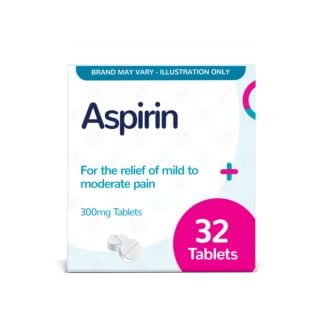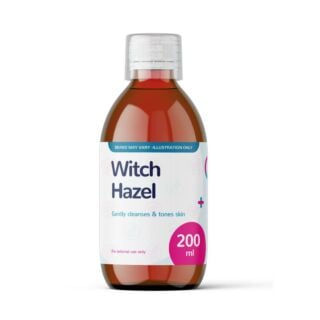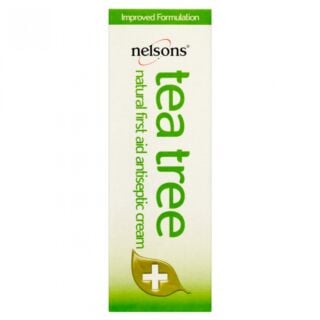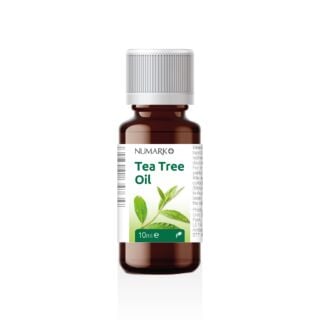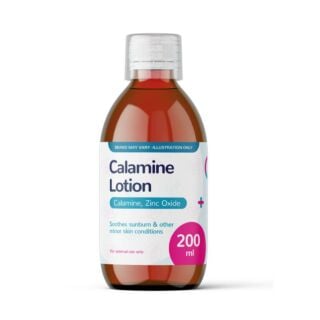19 surprisingly effective home remedies for insect bites & stings

Whether you've encountered an itchy mosquito bite, an irritating bee sting or any other unwelcome encounter with pesky insects, this guide is here to provide you with 19 effective home remedies to alleviate the discomfort.
From simple ingredients found in your kitchen and garden to soothing herbal oils, these remedies are designed to provide relief from itching, reduce inflammation and promote that all-important healing.
Home remedies for insect bites and stings
Looking for a drug-free option to soothe a bite or sting? Whether you’re looking for a natural remedy for mosquito bites, a home remedy for bug bites that itch and swell, or you’re simply preparing for the upcoming bug-biting season, keep reading!
-
1. Baking soda
Baking soda, when used as a paste or diluted with water and applied to insect bites and stings, can help to relieve symptoms due to its alkaline properties.
It helps to neutralise the acidic venom or irritants present in the bite or sting, in addition to reducing itching and inflammation. Baking soda has a drying effect, which can help to draw out any excess fluid.
-
2. Aloe vera
Aloe vera is known for its soothing and healing properties. When applied topically, aloe vera gel can help to reduce itching, inflammation and pain associated with bites and stings.
It contains compounds that have anti-inflammatory and cooling effects on the skin, providing a soothing sensation.
Aloe vera is also moisturising, which can help to keep the affected area hydrated. Furthermore, its natural antibacterial properties may assist in preventing infection, too.
-
3. Ice
Most people will have ice, an ice pack or a cold compress readily available, and it’s a great option to provide immediate relief.
By applying ice or a cold compress, the cold temperature temporarily dulls the nerves, reducing the sensation of pain or itching.
Ice also helps to constrict the blood vessels near the site of the bite or sting, leading to a decrease in swelling and inflammation.
When you’re using ice to soothe a bite or sting, it’s important not to apply ice directly to the skin as it can cause ice burns. You should either wrap the ice in a flannel or plastic bag, or use a ready-made ice pack. Apply to the area for 10-15 minutes.
-
4. Concentrated heat
By applying warmth to the affected area, it soothes the nerves and reduces pain.
Heat also promotes vasodilation, which is the widening of blood vessels. This increased blood flow helps to reduce swelling and inflammation, making the bite or sting heal faster.
By improving circulation, heat can aid in the removal of toxins and promote the delivery of oxygen and nutrients to the site.
Concentrated heat can provide itch relief. It interrupts the itch-scratch cycle by temporarily relieving the itching sensation, providing comfort and preventing further irritation from excessive scratching.
Saturate a flannel with warm water and hold it against the area for 10-15 minutes. To avoid burning the skin, ensure that the water is comfortably warm; do not use boiling water as this can burn the skin.
-
5. Tea
Chamomile tea is renowned for its calming and anti-inflammatory properties. It can help to reduce inflammation and provide a soothing effect when applied topically to insect bites or stings.
Green tea contains antioxidants and anti-inflammatory compounds that can reduce swelling. It may provide relief when used as a compress or applied directly to the affected area.
Peppermint tea has a cooling sensation and may help alleviate itching and provide a soothing effect on insect bites and stings. Its natural properties can provide temporary relief from discomfort.
To use tea for bites and stings, brew a cup of the desired tea using a tea bag or loose tea leaves. Allow the tea to cool down, then use a cotton ball or a clean cloth to apply the cooled tea directly to the bite or sting. Gently dab the affected area or hold the cloth against it for a few minutes.
-
6. Toothpaste
Some people claim that toothpaste can provide temporary relief for insect bites and stings.
While there is anecdotal evidence supporting its use, it's important to note that toothpaste is not specifically formulated for this purpose and may not be as effective as other remedies.
Toothpaste contains various ingredients such as menthol, baking soda and essential oils, which can create a cooling sensation and potentially reduce itchiness or pain temporarily.
However, it may irritate sensitive or broken skin.
-
7. Aspirin paste
Aspirin paste is a home remedy that some people use to alleviate the discomfort of insect bites and stings.
By crushing aspirin tablets and mixing them with a small amount of water to create a paste, it’s believed to provide relief due to the anti-inflammatory properties of salicylic acid found in aspirin.
However, before using aspirin paste, it’s important to consider a few factors. Firstly, individuals with known allergies or sensitivities to aspirin should avoid this remedy.
Secondly, aspirin paste may cause skin irritation or a burning sensation, especially if applied to broken or sensitive skin or left on for an extended period.
-
8. Basil
Basil is mainly known for its uses in cooking, but it also has a number of medicinal properties, too!
Basil contains essential oils like eugenol and linalool, which possess anti-inflammatory and analgesic properties. When applied topically, these oils can help reduce inflammation, redness and pain associated with insect bites and stings.
Additionally, basil has natural antimicrobial properties that aid in preventing infection, making it particularly beneficial for bites or stings that have broken the skin.
To use basil for bites and stings, you can crush a handful of fresh basil leaves to release their essential oils and apply them directly to the affected area.

-
9. Onion
Onion is a staple ingredient in most kitchens, and it can also provide relief against bites and stings.
The presence of compounds like quercetin and sulphur give onions its anti-inflammatory effects, which can help reduce inflammation, swelling and redness.
While the effectiveness may vary among individuals, some people find pain relief by applying onion slices or freshly extracted onion juice to the affected area.
Onions also have potential antimicrobial activity, which can contribute to preventing infection in the bitten or stung area. While it may not be as potent as other home remedies, using an onion can help maintain cleanliness and reduce the risk of complications.
-
10. Echinacea
Echinacea contains compounds like flavonoids and polysaccharides that have anti-inflammatory effects. By reducing inflammation, redness and swelling, echinacea can help alleviate the discomfort associated with bites and stings.
Additionally, echinacea is known for its immune-supporting properties. By boosting the immune system, it enhances the body's natural healing response, potentially speeding up the recovery process.
Echinacea has also been studied for its wound-healing properties, as it may promote tissue repair and regeneration.
-
11. Honey
Honey is a natural antibacterial, which can help prevent infection. Additionally, honey has anti-inflammatory qualities that can help reduce swelling, redness and discomfort caused by the bite or sting.
When applied topically, honey creates a protective barrier on the skin, shielding it from further irritation. Honey's thickness also helps to soothe the skin and relieve itching.
Furthermore, honey's natural enzymes and antioxidants can aid in the regeneration of damaged skin cells, facilitating the healing process.
-
12. Witch hazel
Witch hazel is a natural astringent derived from the bark and leaves of the witch hazel shrub. It offers several benefits for soothing and treating insect bites and stings.
Firstly, witch hazel has anti-inflammatory properties that can help reduce swelling and inflammation around the affected area. It can also help to calm itching and soothe irritated skin.
Secondly, witch hazel acts as a mild antiseptic, which can help cleanse the site and prevent infection. It can help remove bacteria and other impurities from the skin, reducing the risk of complications.
Witch hazel has a cooling effect when applied topically. This can help alleviate the burning or stinging sensation often associated with insect bites and stings, providing immediate relief.
-
13. Tea tree oil
Tea tree oil has anti-inflammatory properties, making it useful to reduce redness, swelling and inflammation caused by insect bites and stings.
Additionally, tea tree oil possesses antimicrobial properties, which help prevent infection by stopping the growth of bacteria and other microorganisms that may enter through broken skin.
It may also provide temporary relief from itching, repressing the urge to scratch. You should dilute tea tree oil with a suitable carrier oil, such as coconut or olive oil, before applying it topically.
-
14. Peppermint oil
Peppermint oil is derived from the peppermint plant. One of its primary benefits is the cooling sensation it provides upon application, which can effectively alleviate the itching and irritation associated with insect bites and stings.
It also contains anti-inflammatory compounds that help reduce swelling and inflammation. The oil contains analgesic properties that provide additional relief by temporarily numbing the area and relieving pain or stinging sensations.
Again, to use peppermint oil, it’s important to dilute it with a carrier oil to prevent skin irritation. Apply a small amount of the mixture to the affected area and gently massage it in.
-
15. Lavender oil
Lavender oil can reduce inflammation and swelling due to its anti-inflammatory properties. It's also a natural painkiller, and may provide a mild numbing effect to dull the sensation of pain and itching.
Calming and relaxing, lavender oil can promote a sense of relaxation and wellbeing, particularly useful if the bite or sting is causing you discomfort and distress.
Lavender oil possesses natural antimicrobial properties that aid in preventing infection. It can inhibit the growth of bacteria, reducing the risk of complications from the bite or sting. You will need to dilute the oil with a carrier oil.
-
16. Apple cider vinegar
The acidic nature of apple cider vinegar helps to neutralise the compounds responsible for itching, and its antiseptic nature helps to cleanse the area to avoid infection. It should be diluted in water before use.
-
17. Garlic
Although research into its benefits is limited, when crushing garlic into a paste with a little water, it’s thought to bring down swelling and inflammation caused by insect bites and stings.
Additionally, garlic is recognized for its antimicrobial properties, primarily attributed to the compound allicin. This suggests that garlic may aid in preventing infection by blocking the growth of bacteria and other microorganisms that could enter through broken skin.
Evidence suggests that garlic might have an analgesic effect. Some individuals have reported temporary pain relief by applying garlic directly to insect bites or stings, potentially due to its numbing properties.
-
18. Calamine lotion
Calamine lotion provides a soothing and cooling effect on the skin due to its ingredients, including zinc oxide and ferric oxide. When applied topically, it helps alleviate itching, burning and stinging.
It has drying properties too, which can be particularly beneficial for insect bites and stings that ooze or weep. By drying out any fluids or discharge from the affected area, it promotes faster healing and prevents further irritation.
Moreover, calamine lotion has mild anti-itch properties. It forms a protective barrier on the skin, reducing the urge to scratch and minimising the risk of secondary infection.
-
19. Oatmeal
Oatmeal is a versatile and natural ingredient found in most households and can provide effective relief from the discomfort of insect bites and stings.
Firstly, oatmeal contains compounds such as phenols and avenanthramides, which possess anti-inflammatory properties. When applied topically, oatmeal can help reduce inflammation, redness and swelling.
Secondly, oatmeal is known for its soothing effect on the skin. It can provide relief from itching and irritation caused by insect bites. The presence of oat proteins forms a protective barrier on the skin, helping to calm the itchiness and minimise the urge to scratch.
Oatmeal also acts as a natural moisturiser, helping to hydrate the skin. This is particularly beneficial for dry or irritated skin.
To use oatmeal for bites and stings, a popular method is to add colloidal oatmeal (finely ground oatmeal) to a lukewarm bath. Soaking in this oatmeal-infused bath for 15-20 minutes allows the beneficial properties of oatmeal to be released and absorbed by the skin.
Alternatively, you can create an oatmeal paste by mixing colloidal oatmeal with a small amount of water and applying it directly to the affected area as a compress.

With these 19 home remedies, you now have a range of natural options to relieve the symptoms of bites and stings.
From the soothing properties of aloe vera and the anti-inflammatory effects of tea tree oil to the cooling sensation of peppermint oil and the drying benefits of calamine lotion, each remedy offers its unique advantages.
Everyday ingredients like baking soda, honey and apple cider vinegar can be easily found in your kitchen and provide effective relief. Don't forget the power of nature with oatmeal baths, witch hazel, garlic, and even the cooling touch of ice!
However, it's essential to listen to your body and seek medical attention if symptoms worsen or severe reactions occur.

